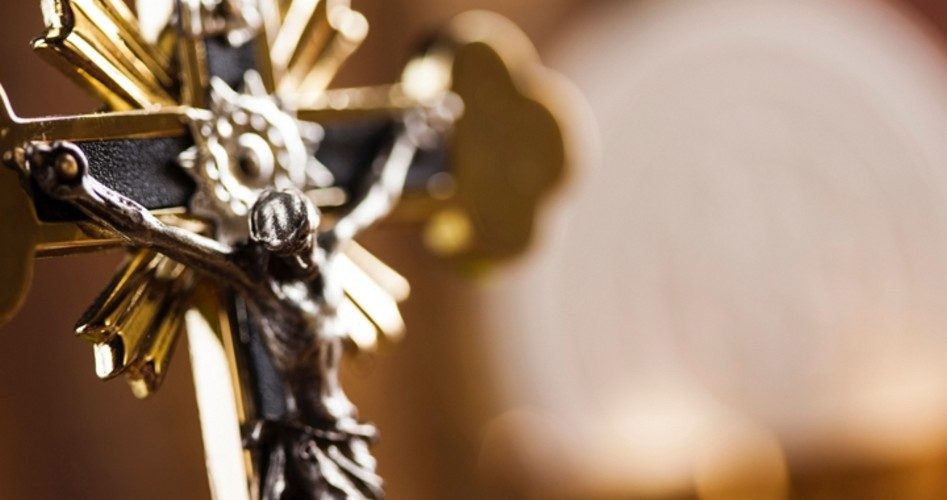
Podcast: Play in new window | Download ()
Subscribe: Android | RSS | More
Gun-wielding terrorists killed at least 24 Christians, including a pastor, during an attack on a church in the West African nation of Burkina Faso on Sunday. The attack was just the latest example of the increasing violence against Christians and other marginalized groups in the majority Muslim nation.
Another 18 were injured and three people were reportedly kidnapped by the terrorists. The attackers also set fire to the church building in the wake of the assault. The terrorists then looted shops in the town where the attack occurred.
Officially, the identities of the gunmen are not yet known, but this attack can be reasonably assumed to be the action of Muslim extremists associated with ISIS, al-Qadea, and Boko Haram.
The attack occurred in the border town of Pansi in the Yagha province in the northeast part of the country. It comes in the wake of another attack in Yagha province last week, when one retired pastor was killed and another pastor and his family were abducted.
Roughly 20 armed attackers separated men from women outside of the Protestant church, according to the mayor of the Boundore commune, Sihanri Osangola Brigadie.
“It hurt me when I saw the people,” Brigadie said after visiting survivors in a hospital in Dori, approximately 100 miles from the scene of the attack.
According to the Armed Conflict Location and Event Data Project, in the past year, more than 1,300 civilians have been murdered in extremist attempts to purge the country of Christianity, Shi’ite sects of Islam, and any remnants of the country’s previous French colonization.
Burkina Faso’s population of 5.1 million people is approximately 60 percent Muslim and 23 percent Christian — 19 percent Catholic, four percent Protestant — with the remaining population either non-religious or practicing traditional indigenous beliefs.
Once a shining example of religious tolerance and how disparate religious groups could coexist in harmony, Burkina Faso is now one of the most dangerous places in the world to live if you’re not a Sunni Muslim extremist.
“Perpetrators use victims’ links to government or their faith to justify the killings, while others appear to be reprisal killings for killings by the government security forces,” said Corrine Dufka, a Human Rights Watch director for the region.
Dufka added that attacks against Christians and other civilians have increased at “an alarming rate” during the past year.
The violence has created a humanitarian crisis in the country with more than 760,000 of the country’s 20 million residents being internally displaced, according to the government.
Burkina Faso is not the only African state in which Islamic extremists have been operating. Over 4,000 civilians have been killed in Burkina Faso, Niger, and Mali in 2019. Throughout Africa’s Sahel Region, terrorist attacks have been increasing. Violence has spread into Nigeria and Cameroon as well, as Islamic extremist groups look to create a hegemony of radical Islamic thought and sharia law in Africa.
Islamic extremists seem to be looking for a new caliphate to replace the one they lost in Iraq and Syria. That being said, reports of ISIS being defeated may have been drastically exaggerated, as there are reports that the terrorist organization is making a comeback.
In January, the UN envoy for the West African region, Mohamed Ibn Chambas, noted that “a devastating surge in terrorist attacks against civilian and military targets” has occurred over recent months.
Chambas also noted that the Islamic extremism is spreading throughout West Africa. “Most significantly, the geographic focus of terrorist attacks has shifted eastwards from Mali to Burkina Faso and is increasingly threatening West African coastal states.”
This year, Burkina Faso debuted on Open Doors’ World Watch List of the most dangerous places in the world to be a Christian. Many of its African neighbors are also on the list. According to Open Doors, Christians in the nation live in an “environment of fear.”
In America, Christian persecution generally takes the form of censorship, political harassment, and Hollywood mockery of the faith. These things are important to note and stay on top of, and we need to call out the bigotry they represent. But it’s important to remember that there are other places in the world where keeping the faith means more than being marginalized by a Godless culture; it’s a life-and-death decision.
Image: JanPietruszka via iStock / Getty Images Plus
James Murphy is a freelance journalist who writes on a variety of subjects, with a primary focus on the ongoing anthropogenic climate-change hoax and cultural issues. He can be reached at [email protected].


